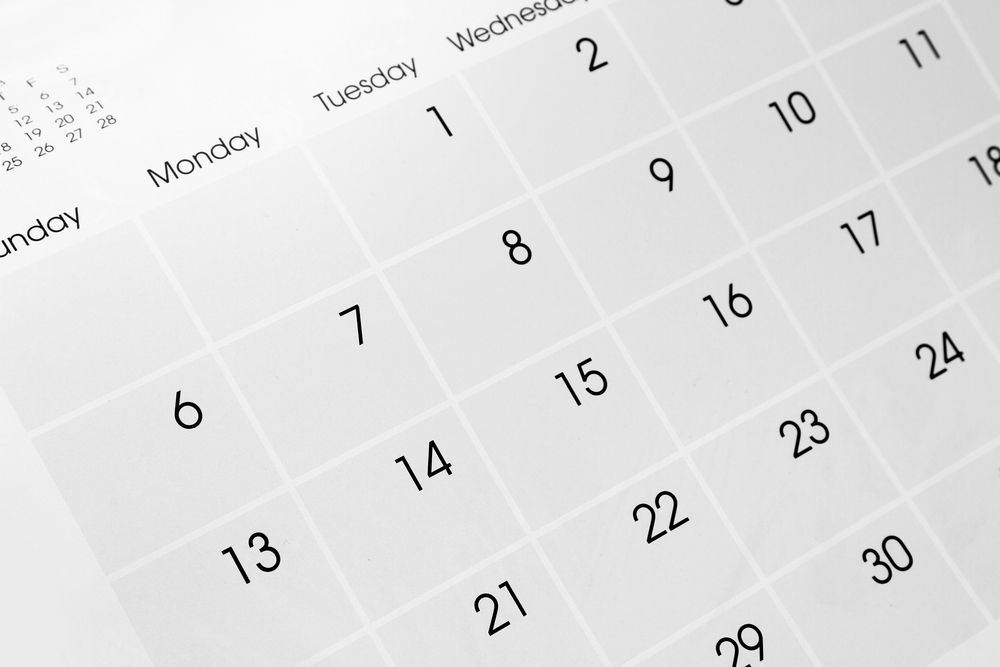Using A Calendar to Schedule Tours
Converting a Call to An Appointment.
Generally, leasing calls are not expected to sell apartments. The call is the initial vehicle to encourage the prospect to visit the property for a tour of potential apartment homes. The call provides just enough information to spark an interest and entice the prospect to visit the property for more information. The tour of the property or apartment home provides an opportunity for the property to speak for itself, and the prospect needs to be invited. Successful leasing calls rarely end with a lease commitment, but it should at least result in the prospect scheduling an appointment to visit the property.
Schedule A Specific Appointment Time
The skilled leasing professional knows the difference in offering potential appointment times: “Would you prefer the 3 p.m. or 6 p.m. appointment I have available for a tour this afternoon?” Rather than simply sharing a description of the hours the office is open with a generally lackluster comment such as, ”Stop by anytime. Someone will be here to help you,” have the confidence to offer potential appointments that assume the appointment time is a commitment. It establishes a professional atmosphere for the leasing process.
Failure to schedule appointments can create frustration, chaos, and confusion. Be sure your team is available, as having several prospects and residents bombard you with a variety of questions at the leasing office and a shortage of staff does not make for a “more-the-merrier” environment. On days when more than one party arrives for apartment tours, quickly organize a group tour. The downside is that it’s nearly impossible to address any individual concerns in a group tour.
Individuals who need to complete applications are expecting privacy and confidentiality. A resident with a question about a lease renewal expects the staff to take the time to check their lease and other records to offer specific answers. A simple request met with a, ”Let me schedule a time for us to talk about that,” can prevent many potential frustrations. If a crowd arrives at the office with a variety of concerns and expectations, schedule appointments for the existing residents as a solution to provide timely customer service to address their concerns.
Preview Scheduled Appointments For Staff Schedules
Scheduling appointments creates a more structured leasing team. Let’s say you have three leases to sign on Saturday, with possibly only two staff scheduled to cover the office. To prevent any desire to rush through a lease presentation because the crowd of folks waiting to tour apartments is growing, try scheduling lease appointments the day before move-in to ensure that each household is given adequate attention for the lease presentation. If 3 p.m. to 5 p.m. are your crazy-busy times, try to schedule renewal appointments in the mornings, when it’s less likely you’ll receive unannounced visitors.
Using A Calendar to Coordinate Appointments
In addition to scheduling appointments, it is equally important to establish a coordinated effort to place all appointments on a master calendar. Whether it’s a paper desk calendar or entered into a shared digital system, the entire staff needs to be aware of any and all appointments for tours, leases, and renewals. If a prospect or resident arrives for an appointment only to find an agent is not available and no one else can help them, they probably will not return. Obviously, emergencies happen or illnesses can not be avoided, but by reviewing a calendar at the beginning of the day, you can prepare for the day’s appointments prior to your prospects’ arrival. Promptly identifying their information (e.g.; applications and guest cards) says a lot about the professionalism of your office, and the team that supports the property.
A Calendar Allows Preparation For The Day
Using a calendar to list all property activities can eliminate conflicts. Listing appointments and staff commitments such as vacations, off-site training and meetings can assist in planning an appropriately sized staff to manage the office each day. Knowing which items are on the calendar prevents, say, overlapping schedules on a day when four leases are scheduled to be signed, as opposed to the next day when absolutely nothing scheduled. If a team member is unable to make an appointment, use a master calendar to confirm the location of applicant files. The calendar will also provide information for staff vacation and training obligations, move-in appointments, etc.
Scheduling Reminders
Use a calendar to show all the appointments scheduled for the week, with reminders that can be sent via text or email. Reminding prospects in advance prevents appointments from being forgotten. It will also remind staff when to prepare for upcoming tours.
Weekly Review and Preparation
Reviewing the calendar at the end of the week recaps the successes and near-misses of the leasing team. A review of each appointment identifies potential move-ins to give your maintenance team adequate time to prepare the apartment home. You should also assign follow-up appointments with prospects who have delayed their decision or are undecided. By reviewing the past week, you are also planning for the future. What days and times have been designated for future appointments? Distribute the calendar to the staff, so they are aware of future lease signings, tours, renewals, or other appointments, and are available when scheduled to provide personal attention to each prospect.
Checking The Calendar
Practice consulting your calendar at the beginning and closing of each day. Scheduling appointments provides professional respect to the staff preparing the tour. A potential lease can mean a multi-thousand dollar commitment by the prospect, so a failure to respond with the high level of preparation and the customer service attitude will compromise any opportunity to get the prospect to sign a lease.



